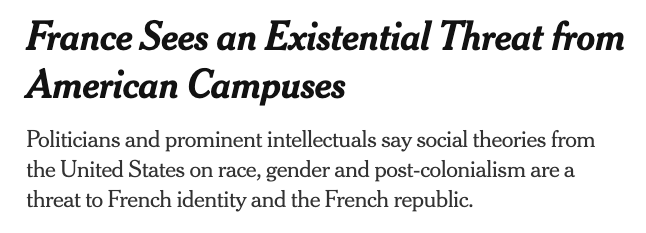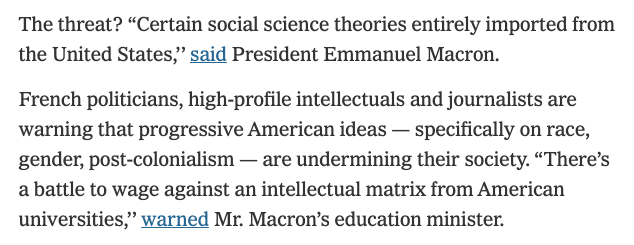
1) I defend post-critique (not with any particular investment in it). But here’s a thread of some of my national media publications also defending left and PoC students and faculty against bullshit ‘free speech’ concern trolling. ...
https://twitter.com/steinjordan/status/1359661389263089666
2) Here’s where I take on ‘The Coddling of the American Mind,’ the ur-text of of this recent iteration of using appeals to free speech to criticize marginalized students who are just urging us to do better: newrepublic.com/article/122543…
3) Here’s my response to Bloomberg and Koch’s ‘free speech’ campus initiatives: newrepublic.com/article/133531…
4) Against the idea that not hosting low-quality gadfly campus speakers is tantamount to censorship or coddling students’ tender sensibilities. This is the one that moved the massive right-wing media machine to try to get me fired, prompting death threats: newrepublic.com/article/142218…
5) More on those death threats, by the way, which is why I’m going off in this thread: newrepublic.com/article/143558…
6) Against the Milo charade. I’m skipping a lot. These are really just the highlights. nytimes.com/2017/09/24/opi…
7) On how cynical ‘free speech’ proponents try to reduce the material complaints of students of color to ‘mere feelings’: academeblog.org/2017/10/29/the…
8) A more recent reprisal: washingtonpost.com/outlook/2019/1…
9) I hope the sample is enough to convince that even though I defend post-critique (!) (what an absolutely ridiculous way to have to begin this thought), I’ve done more than you to defend the people you’re saying I wouldn’t because of...my part in online interpretive debates?
10) And I’m genuinely struggling to see how anyone could possibly think making snide crypto-allegations of suspect politics is a fucking response—befitting this profession—to a grad. student essay and the people defending it.
11) I’m actually shaking with rage right now as I write this out, because the actual enemy—not scholars interested in post-critique, mind you—actual white supremacists and other far-right extremists—show up at my doorstep because I’ve been hammering them on ‘free speech’ stuff...
12) And to have people out here imputing bad politics to even lukewarm defenders of an interpretive ‘method’....nope. That’s obviously my breaking point with this stuff. /end
N.B. I don’t assume OP was directed at me in any way. But I saw it and, after seeing so much bullying going on today in my academic twitter circles, I fucking snapped.
Correctly so.
Correctly so.
• • •
Missing some Tweet in this thread? You can try to
force a refresh






